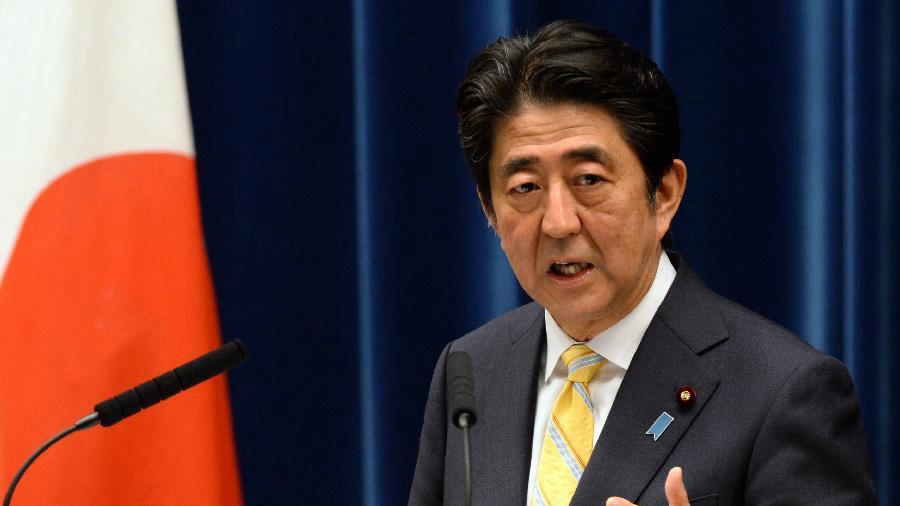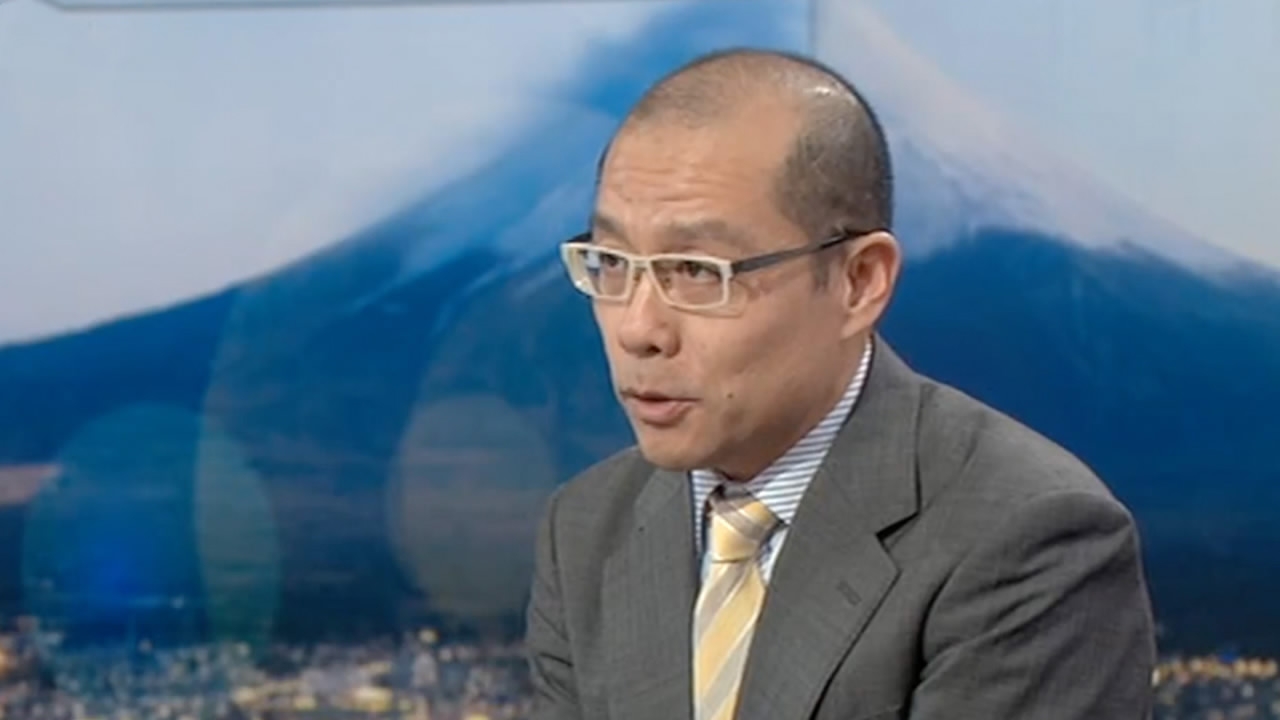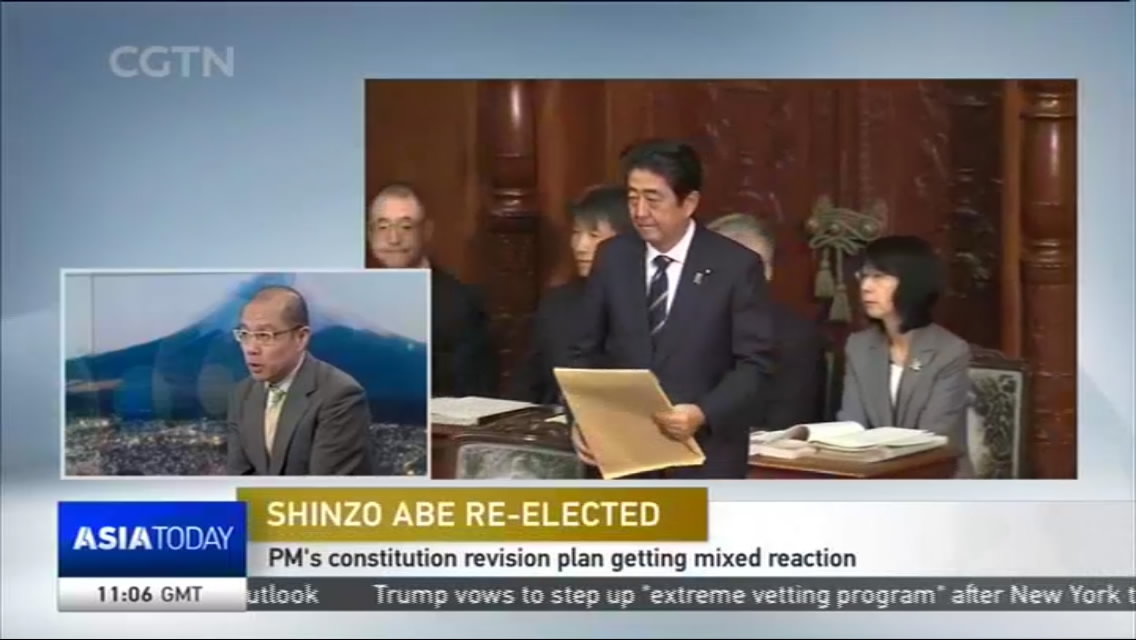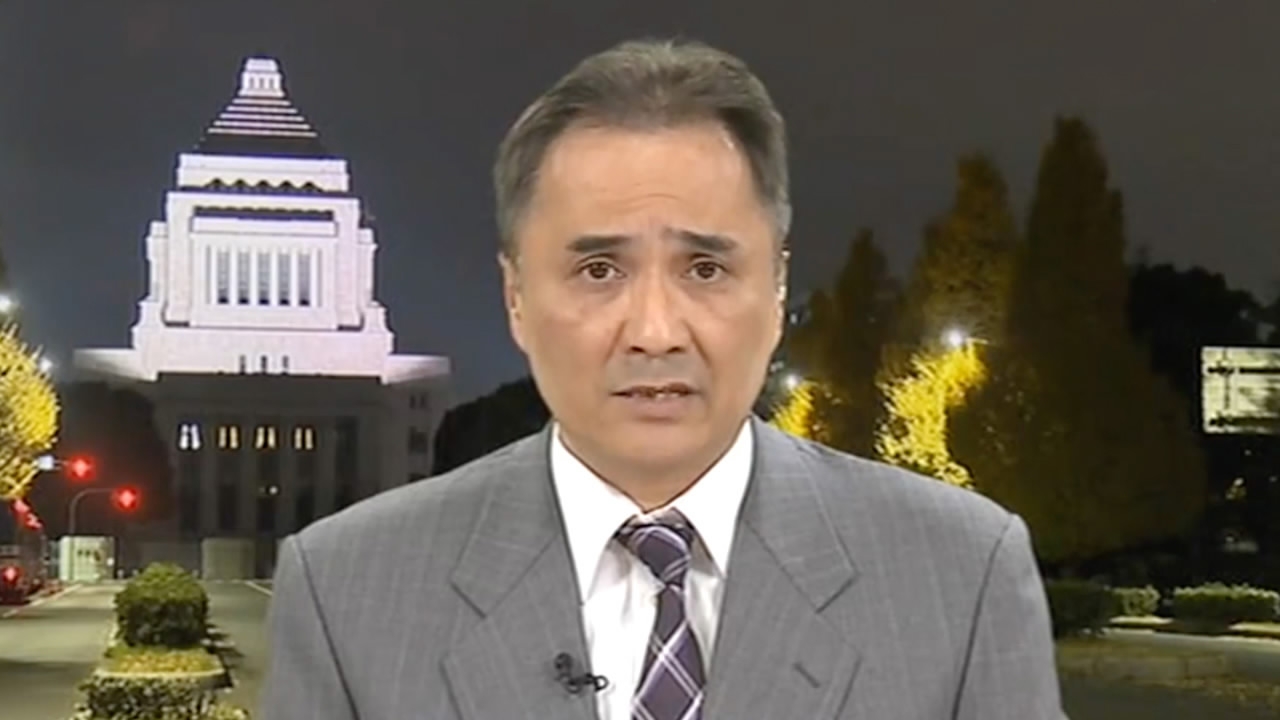
Politics
16:44, 02-Nov-2017
Expert: Abe's plans for constitutional revision will be hard to realize despite landslide election victory
CGTN

By CGTN's Asia Today
"It would be very difficult for Abe to get it [constitutional revision] over the line," said Liu Qingbin, an associate professor at the University of International Business and Economics.
Liu was discussing Japanese Prime Minister Shinzo Abe's controversial plans to revise the country's 70-year-old pacifist constitution, which dates back to the end of World War Two.
"First, the members of the lower house have different versions of what should be revised in the constitution. Abe seeks to rescind Article 9, to regain the right of announcing war and maintaining a military, while others might want to change Articles 1 to 8 about the Emperor, such as to allow a female heir to the throne,” explained Liu.

“Second, Japan must get approval from the US before it can make changes to the top law, which is hard as the two sides have differences in the levels of coordination Tokyo could provide for Washington. The US hopes Japan will be an all-weather friend, like the UK, but Japan finds itself difficult to meet that demand."
The proposals would see Abe allow a broader interpretation of what the constitution does and does not permit, particularly in relation to the country's Self Defense Forces, a move which has caused concern among the country's Asian neighbors.
The current constitution requires the country to renounce war, as well as “war potential”.

Liu Qingbin, an associate professor at the University of International Business and Economics, on CGTN's Asia Today. /CGTN Screenshot
Liu Qingbin, an associate professor at the University of International Business and Economics, on CGTN's Asia Today. /CGTN Screenshot
Election win
Japan's parliament re-elected Shinzo Abe as prime minister on Friday, following his Liberal Democratic Party's landslide victory in lower house elections last month.
Despite a string of cronyism scandals earlier in the year which saw his approval ratings plummet to 30 percent in July, Abe’s popularity has bounced back, standing at 50 percent in September. He is now Japan’s longest-serving peacetime Prime Minister.
Abe formed his new cabinet on Friday, which remains essentially the same as the reshuffled one from August.
Analysts believe that retaining previous cabinet members will ensure continuity in the policies of the Abe administration.
CGTN correspondent Terrence Terashima said the priorities for Abe in the coming months will be a meeting with US President Donald Trump, during which the two leaders may seek to exert more pressure on the DPRK over its nuclear program, and plans for economic growth and constitutional revision.

However, Liu Qingbin argues that it will likely be difficult for Abe to advance his constitutional revision plans, despite huge backing in the lower house.
A latest poll conducted by the Asahi newspaper in October showed that more than 80 percent of lower house members are in approval of revising the constitution.
However, that support is not shared among members of the public. The same poll showed that only 55 percent of Japanese are in favor of making changes to the constitution.
"Abe cited threats from the DPRK as a need to revise the constitution, while the public find it hard to be convinced. Who will attack a country that has no right to start a war? But if you change the law, you open the door to attacks," Liu said.
Asia Today is a 30-minute news and current affairs show on CGTN with a focus on issues in the Asia-Pacific region. It airs daily at 7.00 p.m. BJT (1100GMT) with no rebroadcasts.
2105km

SITEMAP
Copyright © 2018 CGTN. Beijing ICP prepared NO.16065310-3
Copyright © 2018 CGTN. Beijing ICP prepared NO.16065310-3